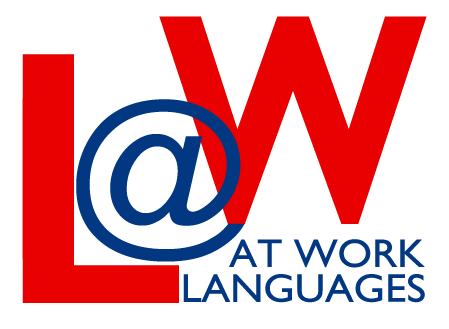
Do you have questions on our courses and services? Here are the answers to some of the questions we are asked most frequently. Can't find the answer you were looking for? Contact us and we will be pleased to help.
Do your courses have fixed length?
No, it depends on the type of the course and your initial language knowledge. For face-to-face courses, we recommend at least 30 hours; in our experience, this is the minimum time needed to achieve a good result.
We will organise a preliminary meeting in which to analyse your needs and outline the most suitable programme for you in terms of hours, method and contents.
Can I start a course at any time of the year?
Of course. All our courses are based on your actual needs when they arise and so you can start a course at any time. You are not tied to a traditional school year or semester.
If you want to prepare for an international certificate, we need to take the official exam dates into account. Obviously, if an exam is in June, in most cases it will not be possible to prepare adequately in just two months or too close to the examination date.
Do I need to take a test before starting a course?
Yes, you do. The test is useful to determine your general foreign language knowledge. You will be asked to take a written test and an oral test with a native-speaking teacher. The test is simple and just the foundation to define your language learning programme taking your real needs and your objectives into account.
Do all courses start from a specific level to reach another one?
Not necessarily. Often, the need is not to simply go up from one level of language knowledge to another, but above all to increase cross skills, for instance.
Naturally, a beginner will need to have sound foundations not only to reach a higher level but also to increases their skills in relation to the specific language they need in their business or for work.
For example: are you a sales manager who needs to approach the English-speaking market? To be able to speak with your future customers, you will need to focus on the technical aspects of the product you sell and on sales methods in English, but it will also be crucial to learn about the small cultural differences between countries that will make the difference when you seal a deal with a potential customer in the United Kingdom, for instance!
How long will it take me to go up a level during the course?
If the objective is to reach a higher level of language knowledge, it will generally take from 60 to 100 hours to go up by one level. It depends greatly on your individual learning ability, your motivation and your commitment to reaching your goal!
Are your courses individual or in groups?
Our courses can be individual or in groups according to the needs and objectives to be reached, which may be - for instance - the common need to improve the foreign language knowledge of a group of employees for a specific company purpose.
How many people are there in a group?
A study group is usually not more than 4 to 6 people with a uniform level of knowledge of the language to allow the teacher to focus effectively on everyone.
Are there specific moments when course progress is monitored?
Yes, of course. We can say that our courses are divided into three steps: identifying objectives, mid-programme monitoring and assessing achieved results according to the initial objectives.
Monitoring is fundamental and essential to determine whether the chosen method is providing the best results or if there were problems or difficulties in time to make the necessary tweaks and ensure the results set at the beginning of the course are achieved.
How much does a course cost?
It is difficult to define the cost of a course beforehand because there are many variables: courses can be individual or in groups, it could be a general course for improving the knowledge of a language going up from one level to the next, it may be a course for obtaining an international certificate or one targeted to develop particular soft skills. The cost per hour and the number of hours needed to achieve the result can vary. There are many type of courses and learning needs of individuals and groups can differ greatly.
Call us or drop us an email: we will analyse your needs to create the best study programme to achieve them.
I need to learn a foreign language to get a promotion. Is that achievable?
Yes, of course. In companies, like for professionals and business people, following a language courses is not about improving the general knowledge but is necessary to optimise communication abilities in relation to a new job. You may have a good basic knowledge of the foreign language allowing you to entertain simple conversations, to write emails and answer the phone; but if you get a new job or the needs change in your company, you may be expected to know everything about sales and marketing and your general English will no longer be enough. You need to focus on the terminology of your new job. We can help you do it!
I need to do an intensive course because I am relocating aboard. Can I do it?
Yes, we also organise intensive courses. They are often required when someone is about to relocate abroad and is expecting a sudden full immersion in the new language and culture. Unlike most other courses, these are held in general every day at times to be determined according to needs.
It is important to remember than even given the urgency to learn as much as possible as quickly as possible, these courses become particularly useful when the newly acquired language is given time to settle. For this reason, the lessons planned with your teacher must include the right time for acquiring and assimilating.
Is my company entitled to subsidised foreign language courses?
Yes, if your company signs up for a interprofessional fund subsidised training plan in time, it is possible and a very good idea! We will keep you up-to-date on the new subsidised training plans in our News area.
Do you also organise courses of Italian as a foreign or second language?
Certainly, we have organised very many courses for managers who have relocated to Italy for work. These courses are very often highly articulated and complete. A foreigner living permanently in Italy needs to learn the language to interact effectively at work and in their personal life, but also needs to learn about uses and everyday culture, non-verbal language, basic notions of geography, history and about the Italian business world
We have successfully taught many managers of major corporations operating in Italy and worldwide.
I travel a great deal for work. Can I make up for the lessons I miss?
You usually can. However, it is important to remember than you may not achieve your results if you do not study continuously. When you decide to start a foreign language course you need to consider the commitment to be able to attend your lessons and to do the homework which may be assigned by your teacher.
Are the results long-lasting?
At the end of the course, you will experience the satisfaction of being able to express yourself in a foreign language like you never thought possible. But remember than a foreign language must be practised to keep up the results you achieved over time. Language is a communication tool in continual evolution.
If your job changes over time and no longer need to speak or hear the language you studied with the same frequency as before, you can keep it up by reading or watching TV programmes in that language. Even better, travel to the country where the language is spoken for your holidays, if you can!
Will I receive a certificate of attendance or another document demonstrating that I took a course with you?
Yes, you will receive a report certificate the level of learning you reached according to the objectives set at the beginning of the course. This document is issued by ourselves and illustrates the result achieved within the scope of our programme. It does not have the value of an international certificate.
If you need a certain recognised international certificate, we can organise preparation courses for examinations in the major European languages.
Do you use material such as books, audio-video material and so on during the course?
Yes, a variety of learning material will be used during the course. Material may vary according to the course and programme type. Books and interactive materials will be used, in addition to more practical and realistic approaches, such as simulation and role-play.
